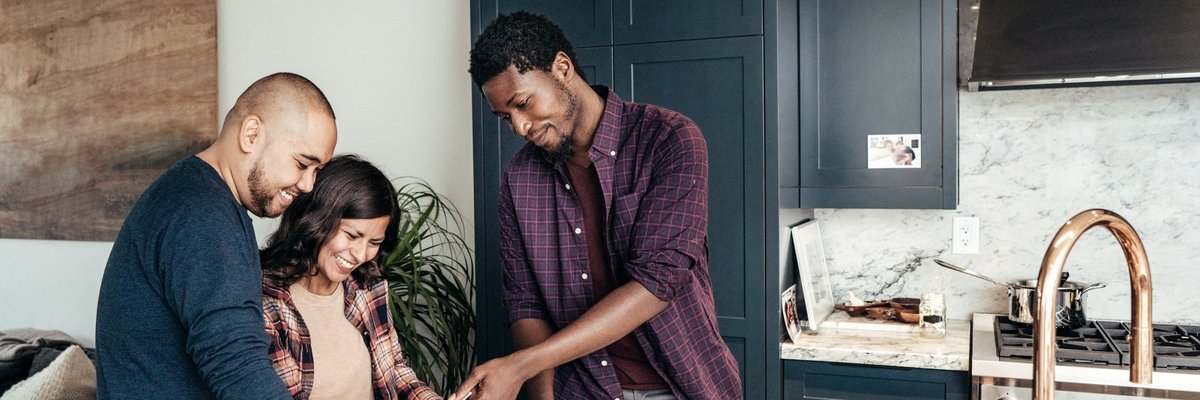3 Reasons Why Homeownership Isn't Always a Good Investment
KEY POINTS
- Most homeowners typically need to stay in their house for five years before they can make a profit.
- House maintenance and repair costs average $6,000 annually, and many homeowners report that these expenses cost more than they expected.
- You can probably make more money in the stock market.
As the last few years have shown, a house can be a smart place to put your money. The median sales price for a new home is up 33% over the past four years, according to Federal Reserve data, giving many homeowners a significant rate of return.
But the rise of home values over the past few years is different from the normal pace of growth. According to data from the Federal Housing Finance Agency, home values typically increase by an average of 4.4% annually.
Most home buyers are looking for something other than an investment opportunity. The top reason -- accounting for 22% of buyers -- why people purchased a house last year was because they want to own a home, according to a recent report from the National Association of Realtors (NAR). Meanwhile, just 2% of buyers purchased to seek financial security.
And some recent data shows that there are still a few reasons why a home isn't always a good investment.
1. It usually takes a while to turn a profit
I was house hunting at the peak of the housing boom during the pandemic and looked at a house a seller had purchased just a few months earlier. The real estate agent told me the owner had just received a job transfer and was looking to recoup the money they paid for the home, plus cover the agent fee.
Even during the very competitive housing market at the time, the idea seemed odd to me that the owner expected to sell the house for more than they bought it for just several months before.
It turns out I was technically right. According to Quicken Loans, the standard recommended time to stay in a home before you can sell it for a profit is about five years. While that wasn't always true during the past few years, we may move back to the previous timeframe if home prices decline.
So if you're looking to buy a home and then sell it quickly later for a profit, it may be best to temper your expectations.
2. Homes are expensive to maintain
While a lot of attention is paid to how much it costs to buy a house, it's the ongoing repair and maintenance costs that can eat into a homeowner's savings account. According to homeowners insurance company Hippo, owners spent an average of nearly $6,000 on home repairs and maintenance last year.
The report also noted that more than two-thirds of homeowners regretted buying. And of those who had regrets, nearly half said that homeownership was more expensive than anticipated.
For homeowners who want to stay on top of these expenses, setting aside the money ahead of time takes some commitment. Wells Fargo recommends saving 1% to 2% of your mortgage price to cover maintenance costs. Considering that the median selling price of a house was $416,300 in May, per the Federal Reserve, the average owner needs to set aside $4,163 to reach that 1% goal.
3. The stock market is generally a better bet
A recent Gallup poll found that 34% of survey respondents -- the largest group in the study -- said that real estate is the best long-term investment. Owning property beat out other investments, including gold, stocks, savings accounts, and bonds.
But while people may assume owning a home is a better investment, the data doesn't match that theory. The S&P 500 -- a stock market index of America's 500 largest publicly traded companies -- has an annual average rate of return of about 10% before inflation.
But looking at some of the latest data on home price increases shows that real estate gains don't always keep pace with stocks. The average annual home price increase since 1991 has been just 4.4%.
Of course, stocks and home prices can go up or down by more or less than their historical averages in any given year. The rapid rise of home prices during the pandemic proved that the housing market can sometimes experience quick returns.
But over the long term, stock values typically grow much faster than home prices. Additionally, if you invest in a low-cost index fund, you may pay less in annual fees than the cost of keeping up your house.
If you're looking to get a mortgage loan and buy a house, it's probably best to do so based on your personal needs rather than financial ones. And, you never know, another housing boom may come along that skews the rate of return in your favor.
Our Research Expert
We're firm believers in the Golden Rule, which is why editorial opinions are ours alone and have not been previously reviewed, approved, or endorsed by included advertisers. Motley Fool Money does not cover all offers on the market. Motley Fool Money is 100% owned and operated by The Motley Fool. Our knowledgeable team of personal finance editors and analysts are employed by The Motley Fool and held to the same set of publishing standards and editorial integrity while maintaining professional separation from the analysts and editors on other Motley Fool brands. Terms may apply to offers listed on this page.



